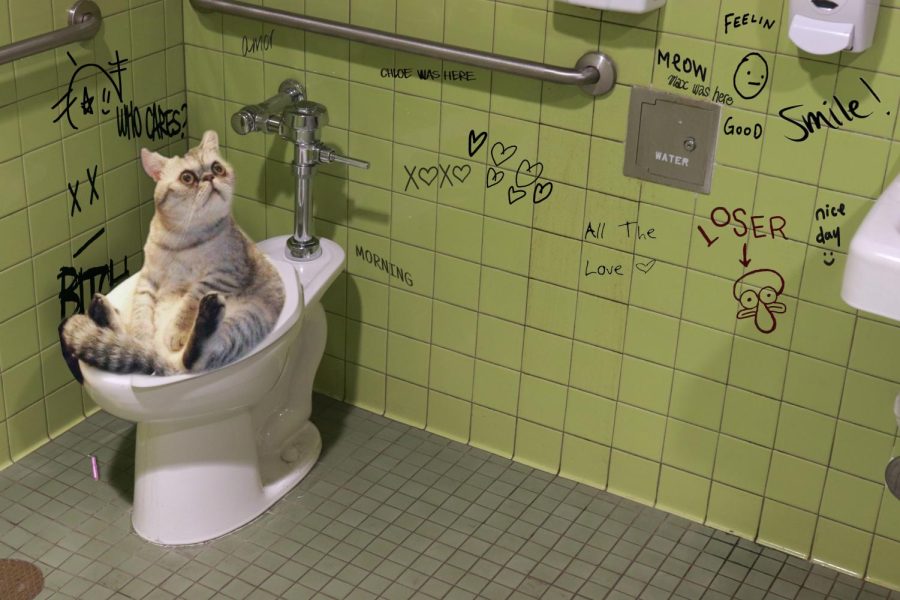Avoid Clogs and Damage: Never Flush Cat Poop Down Your Toilet - Professional Insights
Avoid Clogs and Damage: Never Flush Cat Poop Down Your Toilet - Professional Insights
Blog Article
We have encountered this great article about Don’t flush cat feces down the toilet listed below on the net and decided it made good sense to discuss it with you on my blog.

Intro
As cat proprietors, it's important to be mindful of exactly how we dispose of our feline close friends' waste. While it might seem practical to flush feline poop down the commode, this practice can have detrimental consequences for both the environment and human wellness.
Environmental Impact
Flushing cat poop introduces damaging pathogens and bloodsuckers into the water system, presenting a considerable danger to marine communities. These pollutants can adversely affect aquatic life and compromise water high quality.
Health and wellness Risks
Along with ecological issues, flushing pet cat waste can additionally posture health dangers to people. Pet cat feces may consist of Toxoplasma gondii, a bloodsucker that can cause toxoplasmosis-- a potentially extreme health problem, especially for expecting women and people with damaged body immune systems.
Alternatives to Flushing
Fortunately, there are much safer and more responsible ways to dispose of cat poop. Consider the complying with options:
1. Scoop and Dispose in Trash
The most usual technique of taking care of pet cat poop is to scoop it into an eco-friendly bag and throw it in the trash. Make certain to use a specialized litter inside story and deal with the waste quickly.
2. Usage Biodegradable Litter
Go with biodegradable pet cat litter made from materials such as corn or wheat. These trashes are environmentally friendly and can be securely gotten rid of in the trash.
3. Bury in the Yard
If you have a yard, think about burying pet cat waste in a marked location far from vegetable gardens and water resources. Make sure to dig deep enough to avoid contamination of groundwater.
4. Install a Pet Waste Disposal System
Invest in an animal waste disposal system especially developed for feline waste. These systems make use of enzymes to break down the waste, reducing smell and ecological influence.
Verdict
Accountable pet possession expands beyond giving food and sanctuary-- it additionally entails correct waste management. By avoiding flushing cat poop down the toilet and selecting alternate disposal techniques, we can minimize our ecological footprint and protect human health.
Why You Should Never Flush Cat Poop Down the Toilet
A rose by any other name might smell as sweet, but not all poop is created equal. Toilets, and our sewage systems, are designed for human excrement, not animal waste. It might seem like it couldn’t hurt to toss cat feces into the loo, but it’s not a good idea to flush cat poop in the toilet.
First and foremost, assuming your cat uses a litter box, any waste is going to have litter on it. And even the smallest amount of litter can wreak havoc on plumbing.
Over time, small amounts build up, filling up your septic system. Most litter sold today is clumping; it is made from a type of clay that hardens when it gets wet. Ever tried to scrape old clumps from the bottom of a litter box? You know just how cement-hard it can get!
Now imagine just a small clump of that stuck in your pipes. A simple de-clogger like Drano isn’t going to cut it. And that means it’s going to cost you big time to fix it.
Parasitic Contamination
Believe it or not, your healthy kitty may be harboring a nasty parasite. Only cats excrete Toxoplasma in their feces. Yet it rarely causes serious health issues in the cats that are infected. Most people will be fine too if infected. Only pregnant women and people with compromised immune systems are at risk. (If you’ve ever heard how women who are expecting are excused from litter cleaning duty, Toxoplasma is why.)
But other animals may have a problem if infected with the parasite. And human water treatment systems aren’t designed to handle it. As a result, the systems don’t remove the parasite before discharging wastewater into local waterways. Fish, shellfish, and other marine life — otters in particular — are susceptible to toxoplasma. If exposed, most will end up with brain damage and many will die.
Depending on the species of fish, they may end up on someone’s fish hook and, ultimately on someone’s dinner plate. If that someone has a chronic illness, they’re at risk.
Skip the Toilet Training
We know there are folks out there who like to toilet train their cats. And we give them props, it takes a lot of work. But thanks to the toxoplasma, it’s not a good idea.
As a fervent person who reads about How to Dispose of Cat Poop and Litter Without Plastic Bags, I was thinking sharing that topic was really helpful. Don't hesitate to set aside a second to promote this blog post if you enjoyed reading it. Thanks so much for your time invested reading it.
This Page Report this page